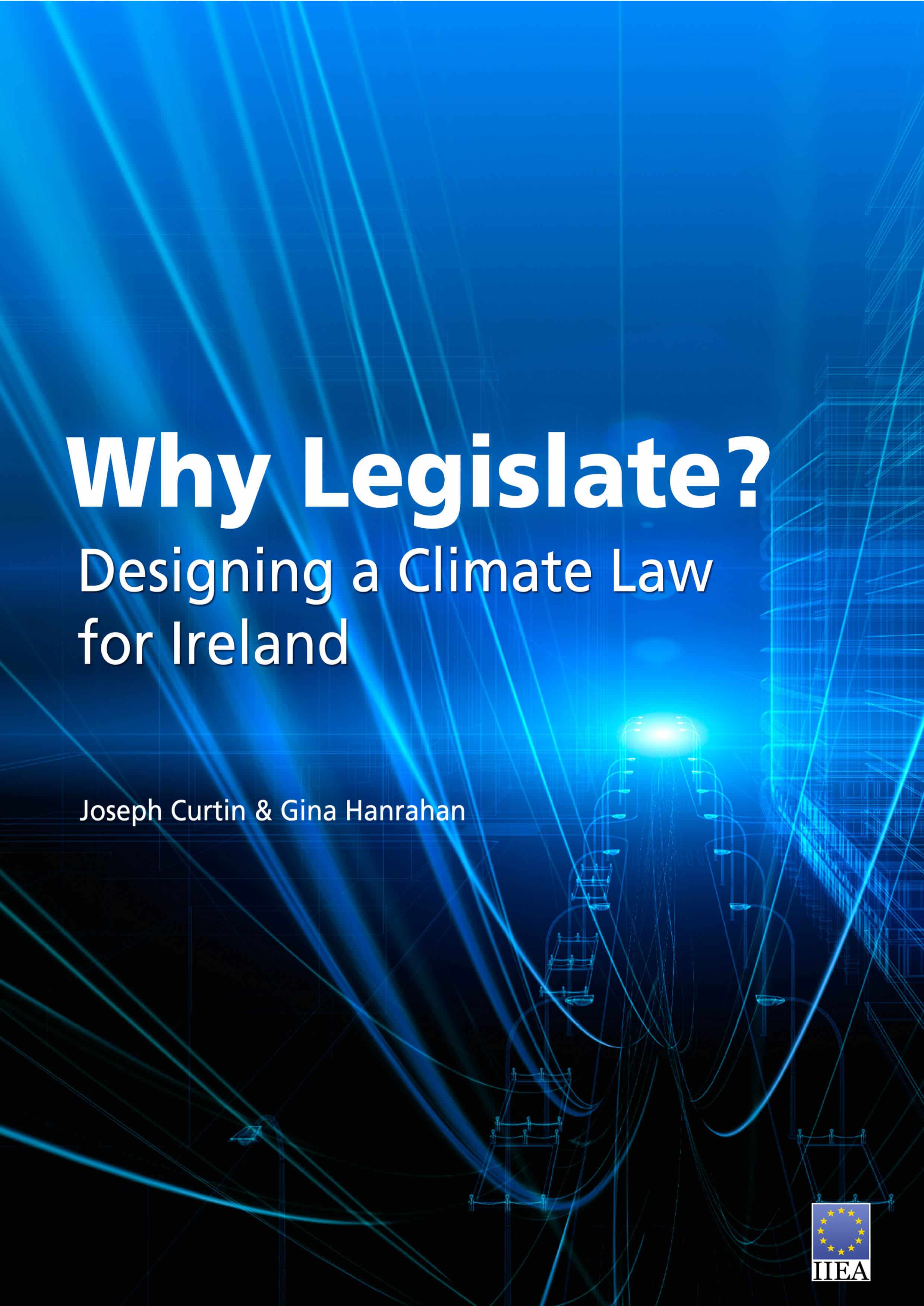Why Legislate? Designing a Climate Law for Ireland

A climate law would have implications for all areas of government policy and economic activity for at least the next forty years. It therefore has the potential to be one of the most significant legislative initiatives of the current government. While there may be broad political agreement on the necessity for climate legislation, there is a lack of consensus - not to say some confusion - about what a climate law should seek to achieve.
This study explores this issue. It examines three published models of climate legislation, and assesses the implications of these bills for the design of a climate law for Ireland.
The paper argues that a climate law is not about setting challenging new emissions targets, choosing which measures to introduce to tackle climate change, or deciding which sector of the economy to target. Legislation could instead seek to address the problems of the past by creating a framework for effective policy implementation.
The paper warns that a poorly designed law has the potential to damage competitiveness at a time when the country can least afford it. A good law, however, could serve to prompt long-term thinking, and act as a foundation for the transition to a clean, smart and green economy.
Joseph Curtin is senior researcher on the IIEA’s Climate Change group. He has worked as a consultant with the OECD on a number of projects including assessing climate policy of countries such as Norway, Israel, Italy and Germany.
Gina Hanrahan is a researcher on the IIEA’s Climate Change and Future of Europe working groups.
